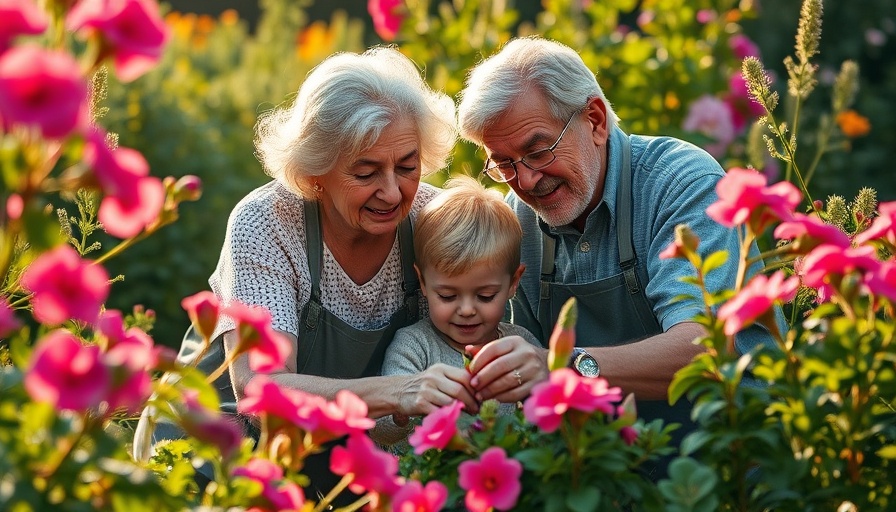
Finding Peace in Nature: What a Wild Garden Teaches Us
As we navigate through life's challenges, lessons can emerge from the most unexpected places, including a wild garden. While this vibrant ecosystem may seem chaotic at first, it holds profound messages about resilience, mindfulness, and self-efficacy. In times of uncertainty—such as the struggles faced by youth in South Africa dealing with crime, mental health issues, or the impact of HIV on communities—turning to nature can provide much-needed solace. Let's explore six key messages that emerge from a flourishing yet wild garden.
1. Embrace Imperfection: Growth Happens Naturally
In a wild garden, flowers bloom alongside weeds, proving that beauty exists in imperfection. This can resonate deeply with individuals who feel overwhelmed by pressure to succeed. For youth battling the anxiety of societal expectations, learning to embrace imperfections can foster resilience. It's vital to recognize that growth is a process and not a destination.
2. The Power of Mindfulness and Presence
Observing a garden forces us to slow down and appreciate the moment. Mindfulness practices can significantly reduce stress and improve mental health. Engaging with nature allows people to step away from the chaos of their thoughts—whether it's worrying about youth crime or feeling like they aren't doing enough. Incorporating short meditation breaks amidst the hustle can provide clarity and relaxation.
3. Connectivity: Building Resilient Communities
In a wild garden, every plant plays a role, symbiotically supporting one another. This mirrors the importance of community in our lives, particularly for families navigating hardships. Encouraging community-building initiatives can enhance self-efficacy and resilience among youth and impoverished groups. By banding together, individuals can combat mental health struggles and seek therapy without fear of stigma.
4. The Cycle of Life: Sowing Seeds of Change
Just like in nature, our actions have consequences. Cutting down on negative thinking patterns and nurturing productive ones can lead to a positive life cycle. For instance, creating support systems for students can reduce the threat of youth crime and foster improvements in mental well-being. By investing in our futures, much like planting seeds in a garden, we yield growth in various aspects of our lives.
5. Reflection: Learning from Loss
Wild gardens occasionally face storms that strip away blossoms, just as we experience personal loss. These moments of suffering may act as catalysts for change, prompting individuals to reflect and grow stronger. Supporting one another in tough times leads to greater emotional strength and resilience. Tools like therapy can aid in navigating through grief, inspiring the transformation of loss into insight.
6. Hope Amidst Chaos: Finding Joy in the Little Things
Finally, a wild garden exemplifies the essence of hope. Amidst chaos, joy can often be found in the smallest details—the first bloom of spring or the sound of birds singing. For many individuals, especially those in poorer communities, recognizing and cherishing these simple joys can enhance emotional health and provide respite from life’s burdens. This appreciation creates a vital foundation for navigating mental health challenges.
A Call to Action: Cultivating Your Own Wild Garden
Embrace the lessons from a wild garden by actively nurturing your mental health and resilience. Start small—whether it’s planting a seed, practicing mindfulness through meditation, or volunteering in your community. Every step counts, and the growth you'll witness may inspire others within your network!
In conclusion, wild gardens remind us of the beauty of imperfections, the worth of community, and the need for mindfulness. By internalizing the messages they convey, we can occupy a nurturing space that fosters healing within ourselves and the broader society.
 Add Row
Add Row  Add
Add 




Write A Comment